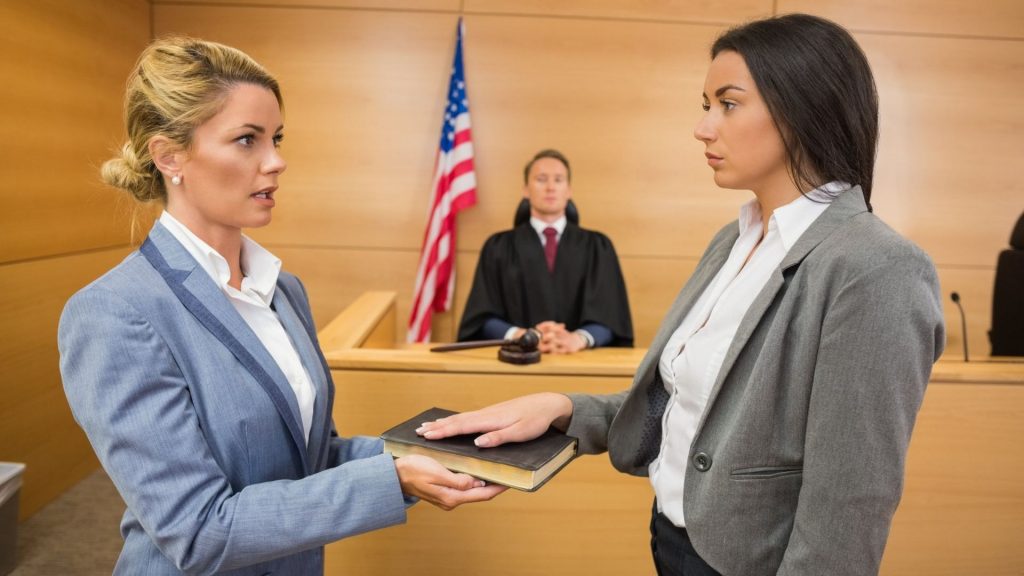How Top Criminal Defense Attorneys Build Winning Strategies
In the high-stakes world of criminal law, the difference between conviction and exoneration often rests on the strategies employed by criminal defense attorneys. Top criminal defense attorneys are skilled in formulating winning strategies that not only defend their clients against charges but also aim to achieve the best possible outcomes. This article explores how experienced criminal defense attorneys develop effective defense strategies through careful planning, creativity, and a deep understanding of the law.
1. Understanding the Client and the Case
A. Initial Consultation
The foundation of any successful defense strategy starts with a thorough understanding of the client’s situation. An initial consultation allows the attorney to gather essential information about:
- The Charges: Understanding the nature of the charges against the client is crucial. This includes knowing the potential penalties and repercussions associated with each charge.
- Case Facts: Attorneys must collect information about the incident leading to the charges. This includes timelines, the involvement of witnesses, and any mitigating or exculpatory factors that may assist the defense.
B. Building Rapport
Establishing a strong attorney-client relationship is vital for effective representation. When clients trust their lawyers and feel comfortable sharing details, it aids in crafting a more compelling defense. Top attorneys know how to communicate effectively and empathetically with their clients, encouraging open dialogue.

2. In-Depth Case Analysis
A. Investigating the Evidence
Top criminal defense attorneys invest time and resources in investigating all aspects of the case, including:
- Gathering Evidence: This includes police reports, medical records, photographs, and any stored evidence relevant to the case. They conduct a thorough examination to identify any weaknesses in the prosecution’s arguments.
- Locating Witnesses: Defense lawyers will identify and interview witnesses who can provide testimony favorable to their clients. Speaking with witnesses early in the process ensures that their recollections remain clear and reliable.
B. Identifying Legal Challenges
An experienced attorney seeks to identify defenses or challenges based on the facts of the case. This allows them to build a robust argument that might include:
- Procedural Errors: If law enforcement violated the client’s rights during the arrest or investigation (e.g., unlawful search and seizure), this could lead to suppressing evidence.
- Insufficient Evidence: If the prosecution’s evidence does not meet the burden of proof, a skilled attorney can argue for dismissal of charges or acquittal.
3. Developing a Defense Strategy
A. Tailored Defense Approach
Every case is unique, so a winning strategy must be tailored to the specifics involved. Factors include:
- Nature of the Charges: The strategy for defending a drug charge will differ significantly from that needed for violent crimes or white-collar offenses.
- Client’s Background: Understanding the client’s personal history, including prior convictions or factors that may mitigate their culpability, can influence the defense strategy.

B. Potential Defense Strategies
Top attorneys build strategies using various approaches, including:
- Affirmative Defenses: In some cases, the defendant may admit to the act but assert that it was justified (e.g., self-defense or defense of others).
- Alibi Defense: Presenting evidence that the defendant was elsewhere when the alleged crime occurred can create reasonable doubt.
- Mistaken Identity: Challenging the prosecution’s claims of the defendant’s identity can serve as a strong defense, particularly in cases involving eyewitness testimony.
- Negotiation for Plea Deals: In complex cases, lawyers may negotiate with prosecutors for favorable plea agreements that can mitigate sentences or reduce the severity of charges.
4. Mastering Trial Representation
A. Trial Preparation
A well-prepared trial strategy is crucial. Top criminal defense attorneys engage in extensive pre-trial preparation, which includes:
- Mock Trials: Some attorneys conduct mock trials to simulate court proceedings. This practice enables them to refine their arguments and anticipate the prosecution’s tactics.
- Organizing Evidence: Attorneys organize exhibits, witness testimonies, and legal arguments to present cohesively in court.
B. Effective Courtroom Skills
During the trial, top criminal defense attorneys rely on strong courtroom skills, including:
- Opening Statements: Crafting compelling opening statements that clearly communicate the defense’s position and outline the evidence that will be presented.
- Cross-Examination: Diligently challenging the prosecution’s witnesses to expose inconsistencies, exaggerations, and biases.
- Closing Arguments: Delivering persuasive closing arguments that tie the evidence back to reasonable doubt and reiterate the defense’s narrative.
5. Collaborating with Experts
A. Utilizing Expert Witnesses
In certain cases, expert witnesses play a vital role in establishing facts or providing specialized knowledge essential to the defense. This could include:
- Forensic Experts: In cases involving physical evidence, forensic experts can analyze items such as DNA, fingerprints, or ballistic reports, potentially leading to critical insights.
- Psychological Experts: In cases where mental health considerations are relevant, psychologists can testify on behalf of the defendant’s state of mind or competency.

B. Building a Network of Resources
Top criminal defense attorneys often build networks of experts in various fields to support their cases. By collaborating with these experts, attorneys can present well-rounded defenses that are scientifically validated.
6. Post-Trial Support
If a case does not result in an acquittal, top attorneys continue to advocate for their clients in the following ways:
A. Sentencing Advocacy
Experienced lawyers can represent clients during sentencing hearings, emphasizing mitigating factors that may reduce the severity of the punishment. This may include highlighting positive contributions to the community or lack of prior criminal history.

B. Appeals Process
Should there be grounds for appeal, skilled attorneys are equipped to navigate the appeals process. This involves identifying specific legal errors made during the trial and advocating for the client’s rights at higher court levels.
7. Conclusion
In the complex landscape of criminal law, experienced criminal defense attorneys are essential for building winning strategies that can lead to dismissal or acquittal in criminal cases. From initial case evaluations to effective trial representation and post-trial advocacy, these attorneys employ a multifaceted approach tailored to each client’s unique circumstances.
Individuals facing criminal charges should prioritize finding a knowledgeable and capable attorney who can navigate the intricacies of the legal system and defend their rights vigorously. Ensuring that you have the best representation can significantly impact the outcome of your case and provide peace of mind during a challenging time.
